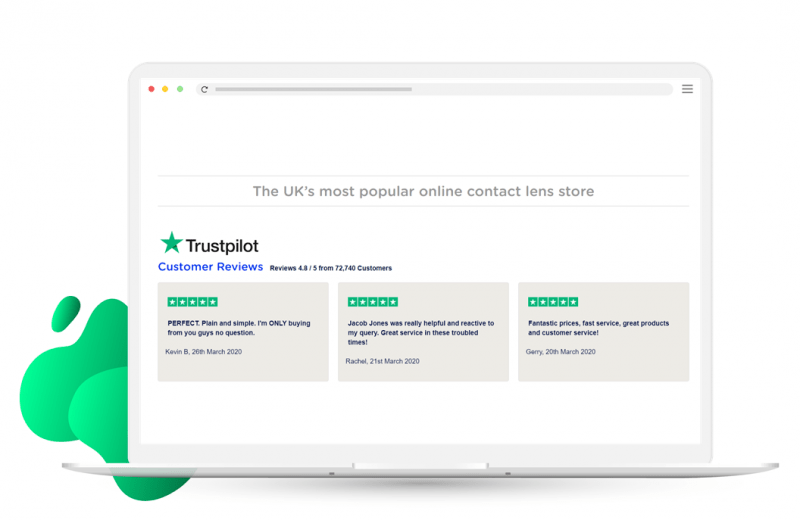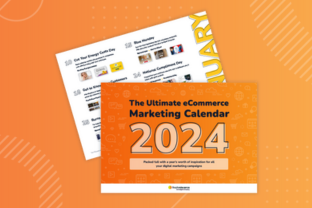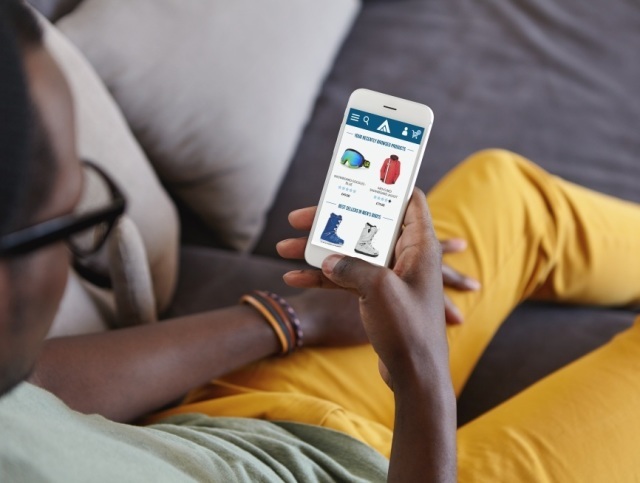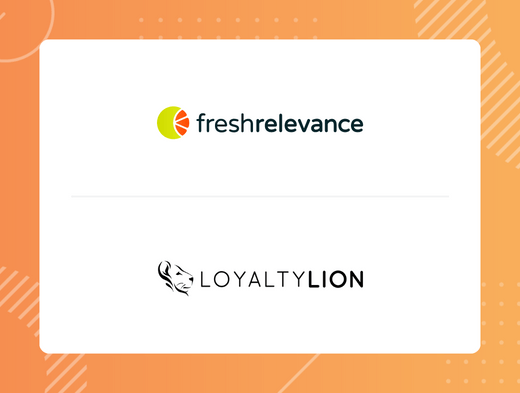As digital marketing strategies evolve, they increasingly incorporate elements of psychology. But how much of this is grounded in empirical evidence? With the CMA’s recent scrutiny of online choice architecture (the subtle, but deliberate design and layout of online user interfaces to guide decision making), it’s a good time to explore whether psychology in digital marketing is a powerful tool that can be harnessed for better engagement, conversion, and customer retention or an overhyped myth. Let’s find out.
What application does psychology have in marketing?
A marketer’s core aim is to understand and influence how consumers behave. Psychology, which is the exploration of how and why we think and act the way we do, is key to developing successful marketing tactics. Marketers use many psychology-based strategies to do this.
Five of the most common principles are briefly outlined here:
Scarcity bias makes people believe products are more valuable when their availability is limited (or it is perceived as limited). Offering limited editions, limited availability, or selling through limited-time offers can trigger a fear of missing out (FOMO), which can prompt buyers to make hasty purchase decisions, pursue and horde available supply, and even pay inflated prices for the product.
Social proof is the human tendency to look to other humans for reinforcement of how they think, feel, and act. Marketers leverage this tendency by using user-generated content, testimonials, ratings, reviews, and endorsements to influence potential customers. Seeing others approve of a product or service reduces the perceived risk and can significantly affect buying behavior.
The decoy effect, also known as the asymmetric dominance effect, occurs when the choice between two items is influenced by the addition of a third, less attractive option. This third option makes one of the original choices seem better in comparison, leading people to change their preference. This tactic is often used in pricing strategies, where a third, less attractive option makes one of the original choices seem more appealing, thereby swaying the decision-making process in favor of the marketer’s desired outcome.
Anchoring refers to the human tendency to rely heavily on the first piece of information offered (the “anchor”) when making a decision. In marketing, this often comes into play with pricing. For instance, when a customer first sees a product at its original, non-discounted price, that standard price becomes their anchor. If they later see a discounted price, they will see the discount as a great deal. Similarly, if they are first exposed to the discounted price and then later see the product at the standard price, they will view the product at its standard price as unreasonably expensive.
Emotional marketing aims to elicit an emotional response from the consumer to influence their purchasing decision. By connecting on an emotional level, brands create a stronger memory association with their products or services. This technique ranges from storytelling that tugs at heartstrings to humor that sparks joy and relatability. Iconic campaigns such as Just Do It from Nike, I’d Like to Buy the World a Coke from Coca Cola, and Always’ Like a Girl sell products and build brand engagement by making an emotional connection.
What role does social proof play in eCommerce?
Social proof acts as a trust signal. It’s a psychological phenomenon where people assume the actions of others reflect correct behavior for a given situation. Seeing positive reviews, ratings, and user testimonials can significantly boost a product’s credibility, encouraging others to buy. It helps reduce the perceived risk of online shopping and can increase conversion rates by providing evidence of product satisfaction.
Why social proof is a powerful marketing tool
In online shopping, the tactile experience is absent, so social proof is indispensable. It provides a testament to the quality and desirability of a product or service. When potential customers see that others have had positive experiences, it mitigates their uncertainty and enhances the credibility and trustworthiness of the eCommerce brand.
Four reasons to use social proof in your marketing strategy
- Reduce friction in the shopping experience: Today’s shoppers expect you to analyze their preference and shopping data alongside data from your other shoppers and buyers to serve up their next best offer. Social proof (i.e., ratings, reviews, UGC, etc.) validates their decision to accept that offer.
- Increase trust in your products and brand: Social proof provides evidence of the reliability of your product or service, which is crucial in an online landscape filled with endless choices and devoid of opportunities to touch or test drive your product. In a recent survey, 81% of the respondents said they researched, bought or considered a product or service after seeing their friends, family or influencers post about it on social media.
- Reduce your return rate: Social proof such as comments, ratings, reviews, and UGC helps shoppers see how others like them have used and benefited from your product (e.g., how did it fit someone of their size, how does it look in a small kitchen, how well do the instructions explain installation, etc.). This makes it easier for them to envision themselves using it and can help reduce returns of online products.
- Enhance reputation and create urgency: A brand surrounded by positive social proof naturally cultivates a reputation of quality, customer satisfaction and desirability. Social proof adds urgency and makes stock more desirable without changing anything about the product or the price. Demonstrating that a product is rated highly, or has proven to be popular with similar shoppers, could be the crucial factor in preventing a bounce or an abandoned cart.
Ways to leverage social proof in your eCommerce
There are multiple ways to integrate social proof into your eCommerce strategy:
Customer reviews and ratings: Encourage satisfied customers to leave reviews and make these testimonials prominently visible on your product pages.
Brand: Vision Direct
Vision Direct builds trust with new shoppers immediately by displaying their Trustpilot rating on their homepage with several 5-star reviews underneath.

User-generated content: Showcase how customers are using your products in real life through social media shares and hashtags.
Brand: In The Style
Women’s fashion retailer In The Style uses selfies taken and posted on social media by its customers for product detail pages on the website to show the products in more realistic, lifelike environments and on a variety of body shapes and sizes.

Source: Inthestyle.com
Influencer partnerships: Collaborate with influencers whose followers match your target audience to tap into their credibility.
Brand: Gymshark
Use influencers to show shoppers how they can get the most out of your products, such as advice on how to style certain items and to add an element of authority to help build trust in your brand. Gym wear giant Gymshark is well known for its’ impressive influencer marketing strategy. By continuously partnering and supporting both grass roots level and higher level athletes and influencers, the brand has successfully built an huge community of brand advocates.
‘Top seller’ product recommendations: Nearly 1 in 4 consumers (22%), say ‘top seller’ product recommendations have persuaded them to make a purchase.

Source: Gymshark.com
Brand: Look Fabulous Forever
Look Fabulous Forever greets shoppers with bestseller product recommendations on the homepage. Shoppers appreciate the time savings and personalized guidance, realizing that these are highly rated products worth checking out.

Source: LookFabulousForever.com
Availability: Showcasing numbers like “X people are looking at this right now” or “X number are still available” can create a sense of popularity and urgency, particularly for items that have fixed availability, such as hotel rooms.
Brand: Booking.com
Booking.com boosts urgency by displaying how many rooms are available during the dates the shopper is searching – speeding the purchase process. To comply with the CMA guidelines and ethical marketing practices, ensure your marketing practices reflect true inventory data.

Source: Booking.com
Conclusion
The question of whether psychology in digital marketing is myth or reality can be answered with a resounding, “Yes!” Psychology in digital marketing is indeed a reality — a reality that, when applied with insight and ethics, has the power to create more impactful and resonant marketing messages.
Leveraging psychological principles such as social proof not only guides consumers in their journey but also helps build stronger, longer-lasting relationships between brands and their audiences. As digital marketing continues to grow and evolve, the intersection of psychology and marketing will undoubtedly deepen, offering an even greater array of tools to connect with the hearts and minds of consumers worldwide.






